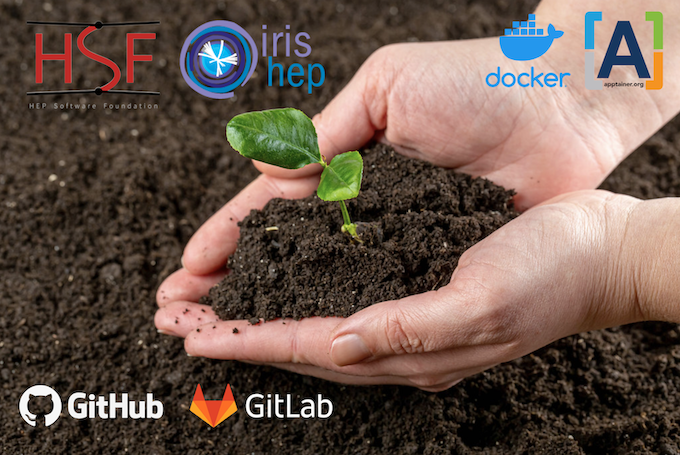What is analysis preservation?
The data set produced by experiments in HEP is awesome! All experiments around the world are working to make the most of it by creating innovative analyses to learn from the data set. However, these analyses should not disappear when the people who wrote the code move on. Luckily, throughout the course of the years, a number of tools have permeated HEP computing culture that can be used to help ensure that analyses are preserved in a robust way, thereby facilitating the reproduction of our own results. This training event aims to introduce analyzers who are already proficient in essential analysis tools and concepts (e.g. C++, Python, event selection, limit setting) to the next level of robust analysis. This includes CI/CD, Dockerization, Apptainer, and more tools that are used throughout all corners of the industry.
Is this for me?
If you have ever spent hours banging your head against code that someone gave you as a starting point, either because it doesn’t compile or segfaults immediately upon running or simply spits out empty histograms - this training event is for you. If you know someone who thinks that Docker is so great and won’t stop advocating for it - this event is for you. If you are going to be doing science at HEP in the future - this event is for you. And if you are considering moving to a career outside of academia - this event is for you.
This training will be particularly useful for those who are in the midst of an analysis at the moment, as it will give you know-how about tools that you can put into practice immediately. However, this is not a pre-requisite for attending, but rather it will be of greatest utility for such individuals.
What is the format of this workshop?
The main part of of the workshop is you learning asynchronously with pre-recorded videos and training material. This means that you can profit from this workshop no matter your time zone! During the whole time we offer assistance via slack.
On the first day, we offer a central kickoff session, help with the setup, and one live lecture. These are only in one timezone, but don't worry if you cannot make it (you can still profit from the rest of the workshop and they will also be recorded).
On the last day, we will offer small-group mentoring sessions (different sessions for all time zones) to help you answer additional/advanced questions and apply your new knowledge to your own analysis. There will also be one more live lecture.
What exactly will I learn?
- Docker (training material)
- Singularity (Singularity/Apptainer)
- GitHub Actions (training material) or GitLab CI (training material)
- Additional topics (lectures)
Are there any prerequisites?
Yes!
- Familiarity with git (very important!)
- Know how to create repositories
- Know how to edit and push files
- You should have an account either with github.com, gitlab.com, or gitlab.cern.ch
- Some familiarity with the linux command line
- Some familiarity with python
Who is supporting this?
This event is supported by CERN and U.S. National Science Foundation Cooperative Agreement OAC-1836650 (IRIS-HEP)
Who is teaching this thing?
This is a hands-on training and consists of asynchronous lectures by the instructor via video recordings. Along with this, there are mentors who will give individual attention and to debug assistance to participants via chat tools. The people filling these roles are listed below.
Instructors:
- Docker:
- Brendan Regnery
- Singularity:
- Marco Mambelli
- Kilian Lieret
- Wouter Deconinck
- Michel Villanueva
- Aman Desai
- GitHub:
- Emery Nibigira
- GitLab:
- Giordon Stark
Mentors :
- Aman Desai
- Aman Goel
- Emery Nibigira
- Giordon Stark
- Guillermo Fidalgo
- Jaydip Singh
- Kilian Lieret
- Marco Mambelli
- Matt Snyder
- Michel Villanueva
- Wouter Deconinck
